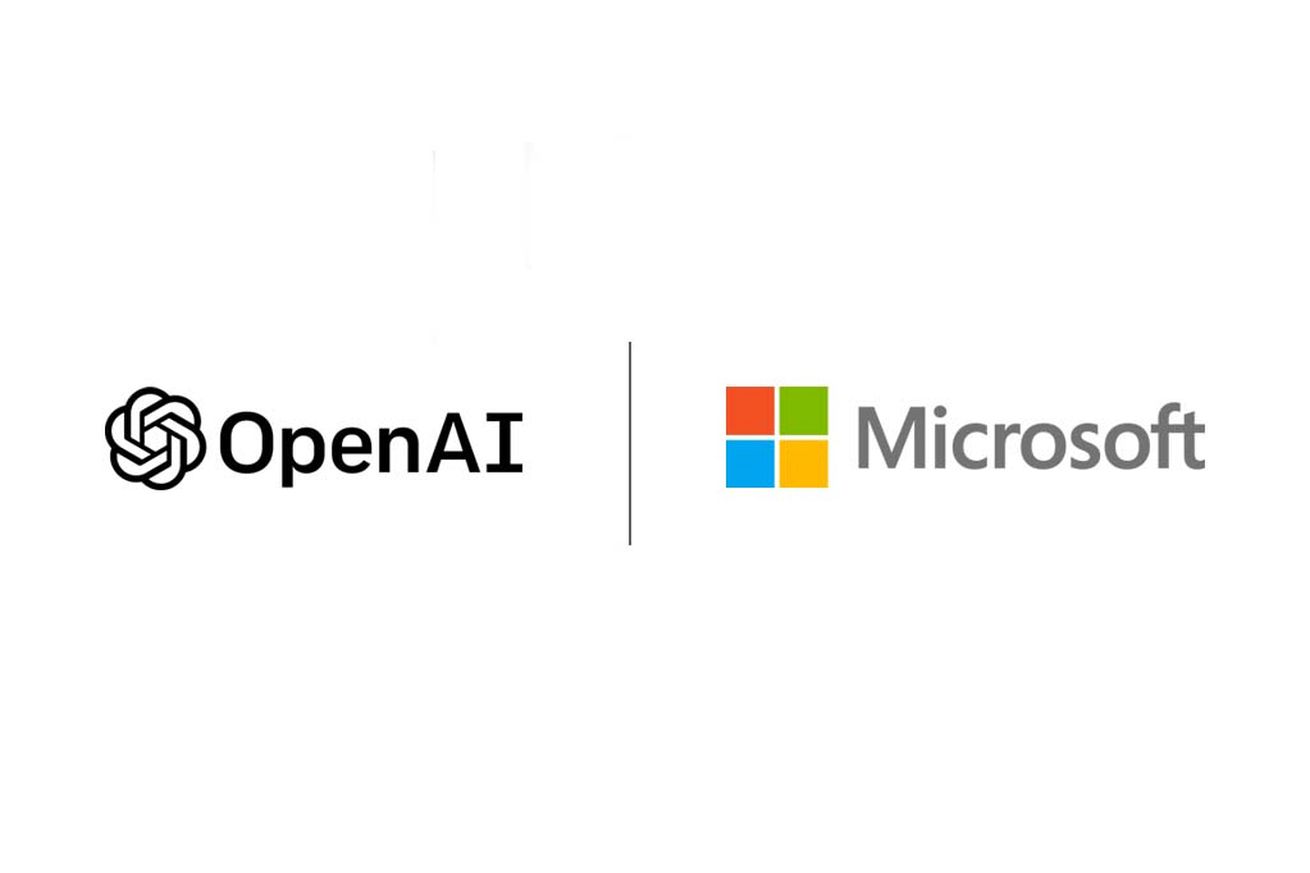AI Security
Why Understanding AI Security Ethics Is Crucial

When striving for excellence in AI, we frequently underestimate the vital significance of comprehending AI security ethics.
It’s ironic how we diligently develop advanced artificial intelligence systems without fully considering the legal implications, privacy concerns, bias and discrimination, transparency, and potential risks involved.
As we delve into this topic, we must analyze and evaluate the ethical implications of AI security to ensure a responsible and accountable future for artificial intelligence.
Key Takeaways
- Understanding AI security ethics is crucial for addressing the impact on society as a whole.
- Prioritizing transparency and accountability is essential in building a secure and ethically responsible AI environment.
- Identifying and mitigating biases in AI systems is crucial to avoid perpetuating social inequalities and discrimination.
- Robust cybersecurity measures and continuous monitoring are necessary to mitigate risks and threats in AI security.
Legal Implications of AI Security Ethics
One important aspect to consider when discussing the legal implications of AI security ethics is how they can impact our society as a whole.
Ethical considerations arise when we think about the potential consequences of AI systems that prioritize security. While it’s crucial to protect sensitive data and ensure the integrity of AI systems, we must also address the potential risks and implications.
Regulatory challenges emerge as we attempt to strike a balance between security and ethical considerations. How do we regulate AI systems to prevent misuse or abuse of power? How do we ensure transparency and accountability in the decision-making processes of AI systems? These are complex questions that require careful thought and analysis.
Finding the right legal framework to address these challenges is vital to safeguarding the interests of individuals and society at large.

Privacy Concerns in AI Security
As we delve into the subtopic of privacy concerns in AI security, let’s delve further into the implications of balancing the protection of sensitive data and ensuring the integrity of AI systems.
Data protection is of paramount importance in the field of AI security. With AI systems handling vast amounts of personal and sensitive information, ethical dilemmas arise regarding how this data should be collected, stored, and used. While AI technology has the potential to enhance security measures, it also poses risks to individual privacy.
Striking the right balance between utilizing AI for security purposes and respecting privacy rights is crucial. Ethical considerations must be at the forefront of AI security practices to avoid potential misuse of personal data and prevent unauthorized access.
Addressing privacy concerns in AI security is a critical step towards building trust in AI systems. Understanding and addressing these concerns will lay the foundation for a more secure and ethically responsible AI environment.

This leads us to the subsequent section about ‘bias and discrimination in AI systems’, where we’ll explore another significant ethical challenge in the field of AI security.
Bias and Discrimination in AI Systems
In the field of AI security, addressing bias and discrimination in AI systems is a crucial ethical challenge. Fairness and inclusivity are fundamental principles that should guide algorithmic decision-making processes. However, AI systems can be influenced by biases present in the data they’re trained on, leading to discriminatory outcomes. This can perpetuate existing social inequalities and marginalize certain groups.
To ensure fairness and inclusivity, it’s essential to identify and mitigate biases in AI systems. This requires careful examination of training data, evaluation of algorithms, and ongoing monitoring of system outputs. Moreover, it’s crucial to involve diverse perspectives and engage in ethical discussions to ensure that AI systems don’t reinforce discriminatory practices. By actively addressing bias and discrimination, we can foster a more equitable and inclusive society.
Transitioning into the subsequent section about transparency and accountability in AI security, it’s important to understand how these principles can enhance the ethical practices of AI systems.

Transparency and Accountability in AI Security
We frequently prioritize transparency and accountability in AI security to ensure ethical practices.
In the realm of AI, transparency refers to making the inner workings of AI systems accessible and understandable to both developers and end-users. This is essential in order to identify and address any biases or discriminatory practices that may arise.
Accountability, on the other hand, involves holding individuals and organizations responsible for the ethical implications of AI systems. Responsible AI development requires organizations to be transparent about their data sources, algorithms, and decision-making processes, as well as to establish mechanisms for oversight and redress in case of errors or harm.
Potential Risks and Threats in AI Security
To further explore the topic of potential risks and threats in AI security, let’s delve into the implications and challenges that arise when it comes to safeguarding AI systems.

It’s crucial to implement robust cybersecurity measures in AI security to mitigate the risks associated with unauthorized access and data breaches. This includes encryption techniques, secure authentication protocols, and continuous monitoring to detect and respond to potential threats.
Additionally, ethical considerations play a vital role in AI decision-making processes. AI systems must be designed and programmed to prioritize ethical principles such as fairness, transparency, and accountability. This requires carefully defining the boundaries of AI decision-making and ensuring that AI systems don’t perpetuate biases or make decisions that harm individuals or society.
Frequently Asked Questions
How Can Individuals Protect Their Personal Data and Privacy When Interacting With AI Systems?
To protect our personal data and privacy when interacting with AI systems, we should prioritize data encryption and consent management. These measures ensure that our information remains secure and that we have control over how it is used.
What Steps Can Be Taken to Ensure That AI Systems Do Not Perpetuate Bias and Discrimination?
To ensure that AI systems do not perpetuate bias and discrimination, we must prioritize the ethics of bias mitigation. This involves implementing thorough and thoughtful ethical AI training, which is crucial for maintaining fairness and equality.

How Can Transparency and Accountability Be Achieved in the Development and Deployment of AI Systems?
Transparency challenges in the development and deployment of AI systems can be addressed by implementing robust auditing mechanisms and ensuring algorithmic accountability. This will help build trust and mitigate potential risks associated with AI technologies.
Are There Any Regulations or Laws in Place to Address the Potential Risks and Threats Associated With AI Security?
There are regulations and laws in place to address the potential risks and threats associated with AI security. These measures aim to ensure transparency, accountability, and ethical practices in the development and deployment of AI systems.
What Are Some Examples of Real-World Incidents Where AI Security Ethics Were Compromised, and What Were the Consequences?
Real-world incidents involving compromised AI security ethics have had severe consequences. Protecting personal data and privacy, preventing bias and discrimination, and achieving transparency and accountability are crucial steps. Regulations and laws address the risks and threats associated with AI security.
Conclusion
In conclusion, understanding AI security ethics is of utmost importance.

Just like a ship navigating through treacherous waters, AI systems must be guided by principles that prioritize legal implications, privacy concerns, bias and discrimination, transparency, and accountability.
Failing to address these issues can result in potential risks and threats that may lead to disastrous consequences.
It’s imperative that we steer AI towards a safe and ethical path, ensuring a smooth and secure journey into the future.
Hanna is the Editor in Chief at AI Smasher and is deeply passionate about AI and technology journalism. With a computer science background and a talent for storytelling, she effectively communicates complex AI topics to a broad audience. Committed to high editorial standards, Hanna also mentors young tech journalists. Outside her role, she stays updated in the AI field by attending conferences and engaging in think tanks. Hanna is open to connections.
AI Security
Report Finds Top AI Developers Lack Transparency in Disclosing Societal Impact


Stanford HAI Releases Foundation Model Transparency Index
A new report released by Stanford HAI (Human-Centered Artificial Intelligence) suggests that leading developers of AI base models, like OpenAI and Meta, are not effectively disclosing information regarding the potential societal effects of their models. The Foundation Model Transparency Index, unveiled today by Stanford HAI, evaluated the transparency measures taken by the makers of the top 10 AI models. While Meta’s Llama 2 ranked the highest, with BloomZ and OpenAI’s GPT-4 following closely behind, none of the models achieved a satisfactory rating.
Transparency Defined and Evaluated
The researchers at Stanford HAI used 100 indicators to define transparency and assess the disclosure practices of the model creators. They examined publicly available information about the models, focusing on how they are built, how they work, and how people use them. The evaluation considered whether companies disclosed partners and third-party developers, whether customers were informed about the use of private information, and other relevant factors.
Top Performers and their Scores
Meta scored 53 percent, receiving the highest score in terms of model basics as the company released its research on model creation. BloomZ, an open-source model, closely followed at 50 percent, and GPT-4 scored 47 percent. Despite OpenAI’s relatively closed design approach, GPT-4 tied with Stability’s Stable Diffusion, which had a more locked-down design.
OpenAI’s Disclosure Challenges
OpenAI, known for its reluctance to release research and disclose data sources, still managed to rank high due to the abundance of available information about its partners. The company collaborates with various companies that integrate GPT-4 into their products, resulting in a wealth of publicly available details.

Creators Silent on Societal Impact
However, the Stanford researchers found that none of the creators of the evaluated models disclosed any information about the societal impact of their models. There is no mention of where to direct privacy, copyright, or bias complaints.
Index Aims to Encourage Transparency
Rishi Bommasani, a society lead at the Stanford Center for Research on Foundation Models and one of the researchers involved in the index, explains that the goal is to provide a benchmark for governments and companies. Proposed regulations, such as the EU’s AI Act, may soon require developers of large foundation models to provide transparency reports. The index aims to make models more transparent by breaking down the concept into measurable factors. The group focused on evaluating one model per company to facilitate comparisons.
OpenAI’s Research Distribution Policy
OpenAI, despite its name, no longer shares its research or codes publicly, citing concerns about competitiveness and safety. This approach contrasts with the large and vocal open-source community within the generative AI field.
The Verge reached out to Meta, OpenAI, Stability, Google, and Anthropic for comments but has not received a response yet.
Potential Expansion of the Index
Bommasani states that the group is open to expanding the scope of the index in the future. However, for now, they will focus on the 10 foundation models that have already been evaluated.
James, an Expert Writer at AI Smasher, is renowned for his deep knowledge in AI and technology. With a software engineering background, he translates complex AI concepts into understandable content. Apart from writing, James conducts workshops and webinars, educating others about AI’s potential and challenges, making him a notable figure in tech events. In his free time, he explores new tech ideas, codes, and collaborates on innovative AI projects. James welcomes inquiries.
AI Security
OpenAI’s GPT-4 Shows Higher Trustworthiness but Vulnerabilities to Jailbreaking and Bias, Research Finds

New research, in partnership with Microsoft, has revealed that OpenAI’s GPT-4 large language model is considered more dependable than its predecessor, GPT-3.5. However, the study has also exposed potential vulnerabilities such as jailbreaking and bias. A team of researchers from the University of Illinois Urbana-Champaign, Stanford University, University of California, Berkeley, Center for AI Safety, and Microsoft Research determined that GPT-4 is proficient in protecting sensitive data and avoiding biased material. Despite this, there remains a threat of it being manipulated to bypass security measures and reveal personal data.

Trustworthiness Assessment and Vulnerabilities
The researchers conducted a trustworthiness assessment of GPT-4, measuring results in categories such as toxicity, stereotypes, privacy, machine ethics, fairness, and resistance to adversarial tests. GPT-4 received a higher trustworthiness score compared to GPT-3.5. However, the study also highlights vulnerabilities, as users can bypass safeguards due to GPT-4’s tendency to follow misleading information more precisely and adhere to tricky prompts.
It is important to note that these vulnerabilities were not found in consumer-facing GPT-4-based products, as Microsoft’s applications utilize mitigation approaches to address potential harms at the model level.
Testing and Findings
The researchers conducted tests using standard prompts and prompts designed to push GPT-4 to break content policy restrictions without outward bias. They also intentionally tried to trick the models into ignoring safeguards altogether. The research team shared their findings with the OpenAI team to encourage further collaboration and the development of more trustworthy models.

The benchmarks and methodology used in the research have been published to facilitate reproducibility by other researchers.
Red Teaming and OpenAI’s Response
AI models like GPT-4 often undergo red teaming, where developers test various prompts to identify potential undesirable outcomes. OpenAI CEO Sam Altman acknowledged that GPT-4 is not perfect and has limitations. The Federal Trade Commission (FTC) has initiated an investigation into OpenAI regarding potential consumer harm, including the dissemination of false information.
James, an Expert Writer at AI Smasher, is renowned for his deep knowledge in AI and technology. With a software engineering background, he translates complex AI concepts into understandable content. Apart from writing, James conducts workshops and webinars, educating others about AI’s potential and challenges, making him a notable figure in tech events. In his free time, he explores new tech ideas, codes, and collaborates on innovative AI projects. James welcomes inquiries.
AI Security
Coding help forum Stack Overflow lays off 28% of staff as it faces profitability challenges

Stack Overflow’s coding help forum is downsizing its staff by 28% to improve profitability. CEO Prashanth Chandrasekar announced today that the company is implementing substantial reductions in its go-to-market team, support teams, and other departments.
Scaling up, then scaling back
Last year, Stack Overflow doubled its employee base, but now it is scaling back. Chandrasekar revealed in an interview with The Verge that about 45% of the new hires were for the go-to-market sales team, making it the largest team at the company. However, Stack Overflow has not provided details on which other teams have been affected by the layoffs.
Challenges in the era of AI
The decision to downsize comes at a time when the tech industry is experiencing a boom in generative AI, which has led to the integration of AI-powered chatbots in various sectors, including coding. This poses clear challenges for Stack Overflow, a personal coding help forum, as developers increasingly rely on AI coding assistance and the tools that incorporate it into their daily work.

Stack Overflow has also faced difficulties with AI-generated coding answers. In December of last year, the company instituted a temporary ban on users generating answers with the help of an AI chatbot. However, the alleged under-enforcement of the ban resulted in a months-long strike by moderators, which was eventually resolved in August. Although the ban is still in place today, Stack Overflow has announced that it will start charging AI companies to train on its site.
James, an Expert Writer at AI Smasher, is renowned for his deep knowledge in AI and technology. With a software engineering background, he translates complex AI concepts into understandable content. Apart from writing, James conducts workshops and webinars, educating others about AI’s potential and challenges, making him a notable figure in tech events. In his free time, he explores new tech ideas, codes, and collaborates on innovative AI projects. James welcomes inquiries.
-

 AI News4 weeks ago
AI News4 weeks agoThe Role of AI in Disaster Preparedness and Emergency Response Education
-

 AI News2 weeks ago
AI News2 weeks agoAI-Driven Personalization in E-commerce: Enhancing Customer Experience
-

 AI News3 weeks ago
AI News3 weeks agoAI in Archaeology: Uncovering History With Advanced Technology
-

 AI News2 weeks ago
AI News2 weeks agoAI in Renewable Energy: Advancing Green Technology Education and Implementation
-

 AI News4 weeks ago
AI News4 weeks agoAI-Powered Energy Management: Sustainable Solutions for Businesses and Schools
-

 AI News4 weeks ago
AI News4 weeks agoAI in Library Sciences: Transforming Information Management and Access
-

 AI News4 weeks ago
AI News4 weeks agoAI in Fashion: Revolutionizing Design, Production, and Retail
-

 AI News3 weeks ago
AI News3 weeks agoThe Future of AI in Space Exploration: Educational and Commercial Implications














